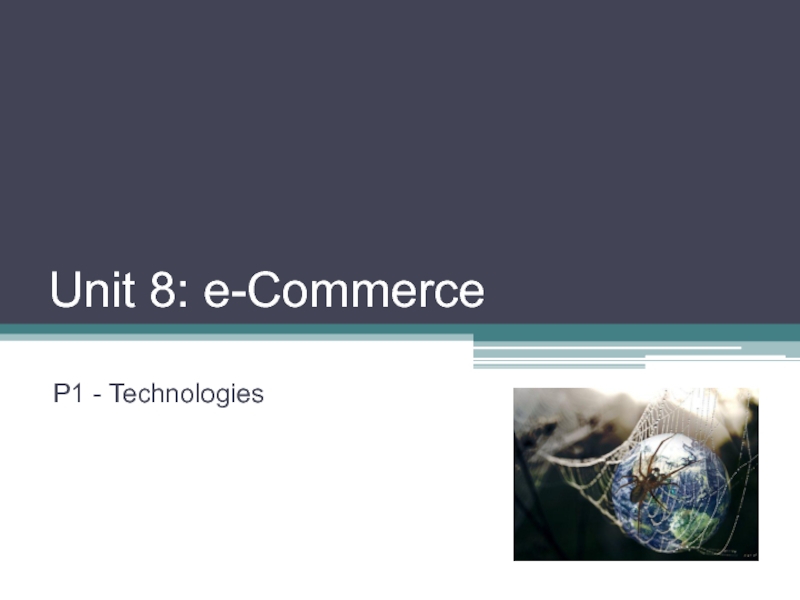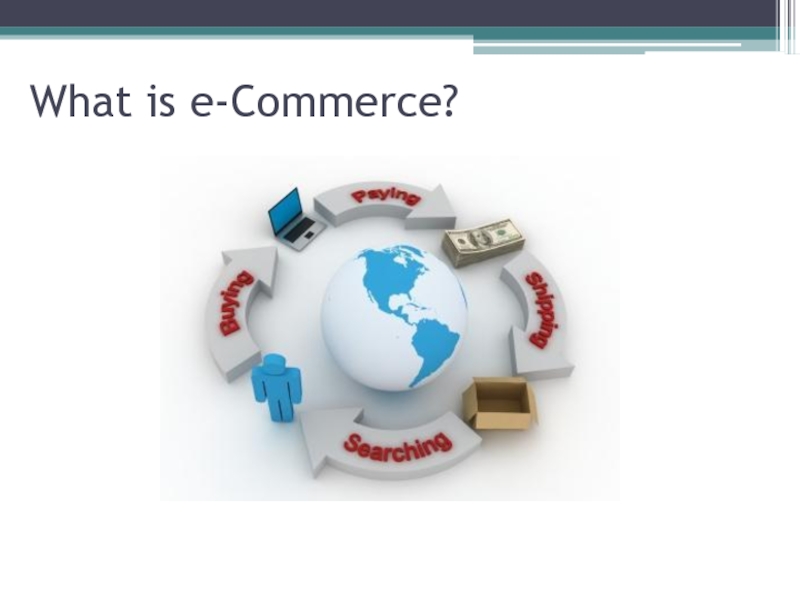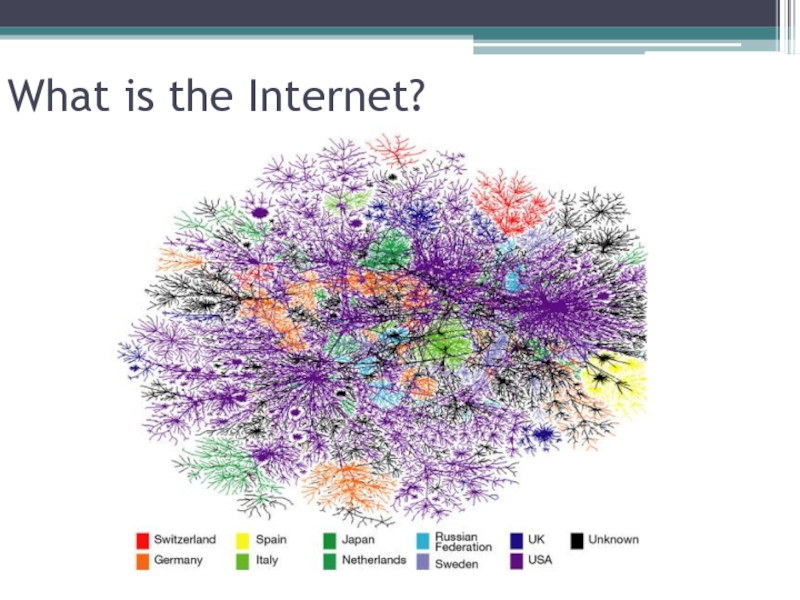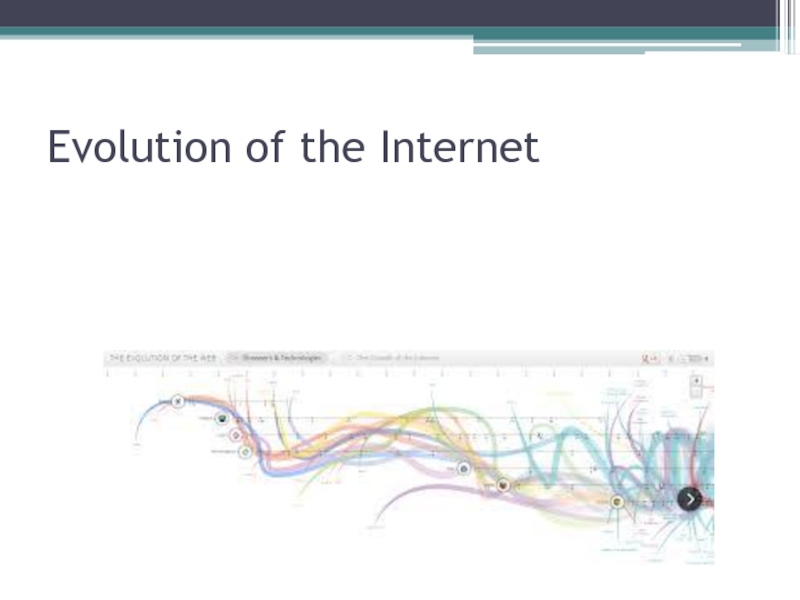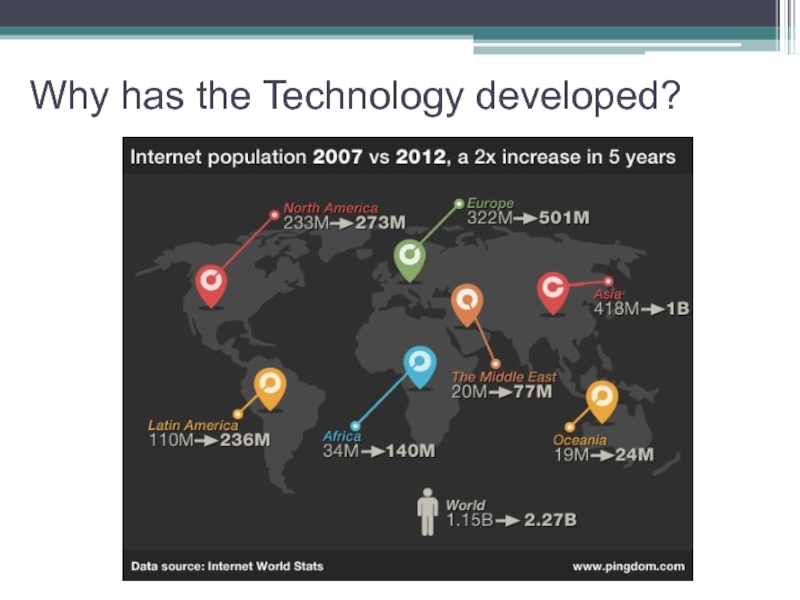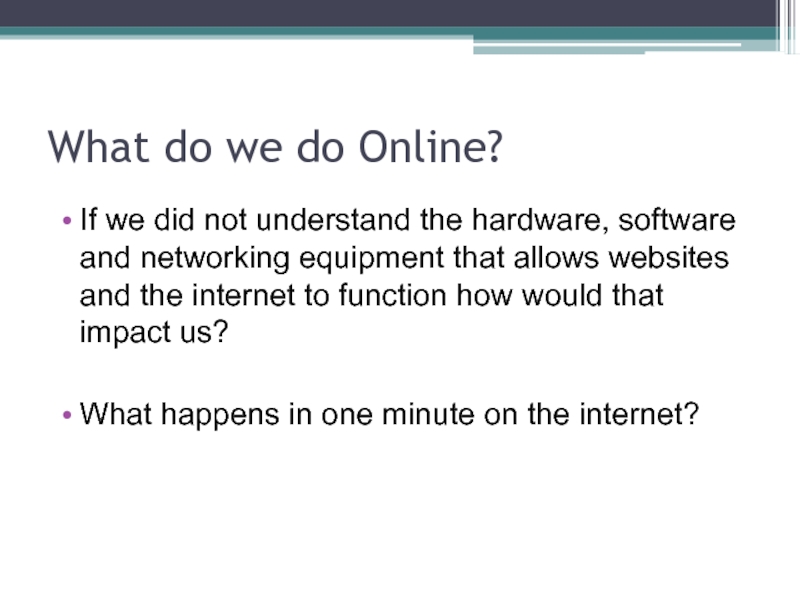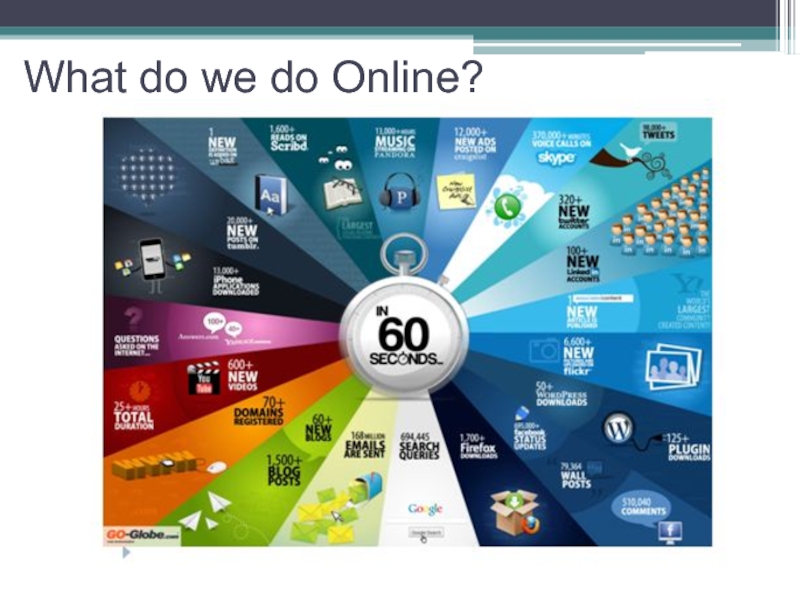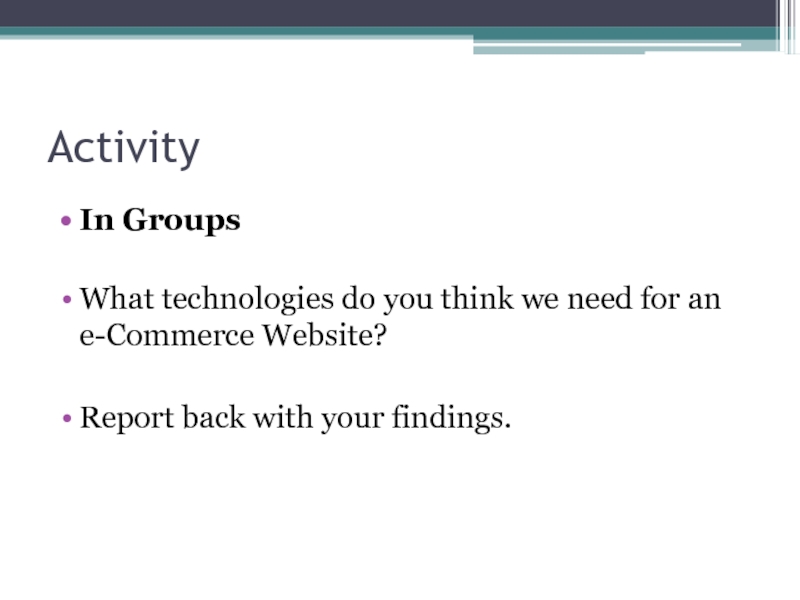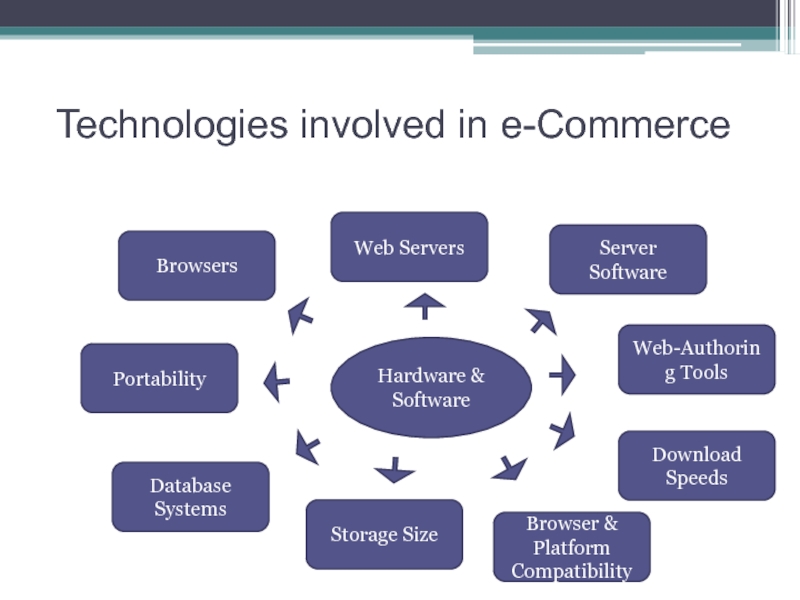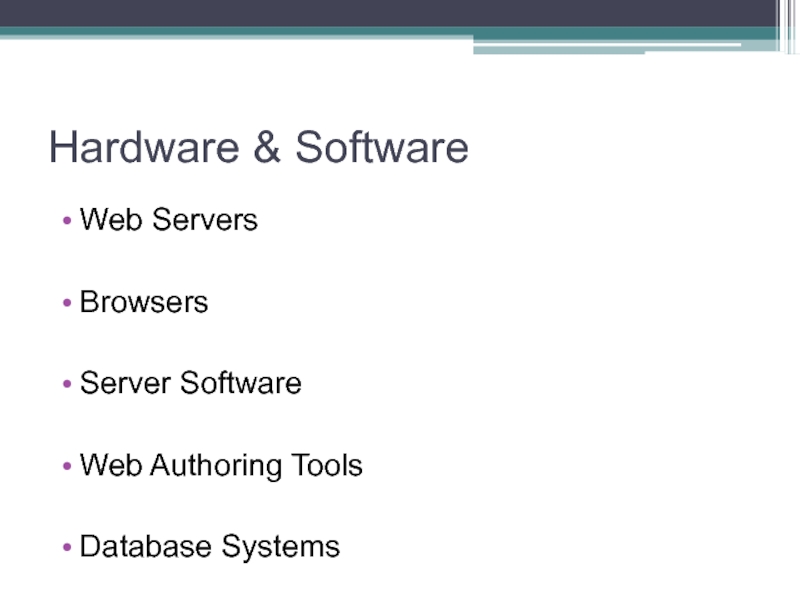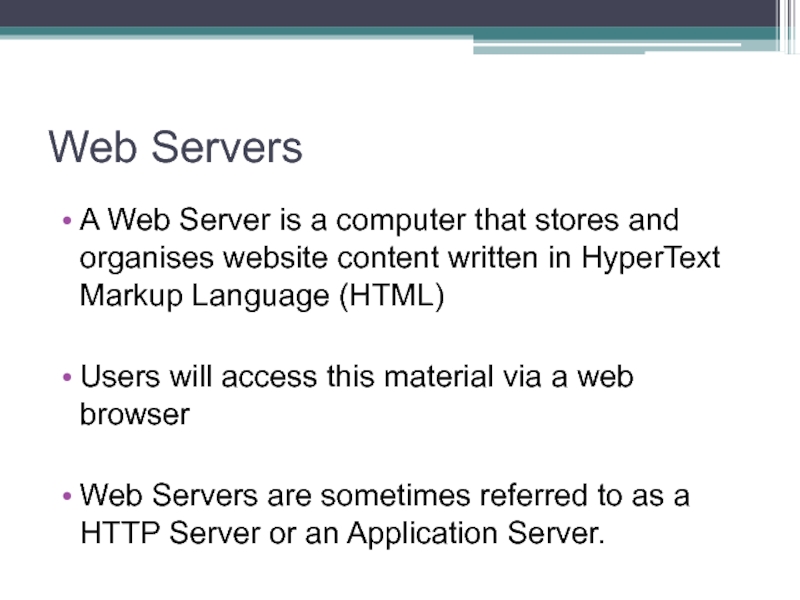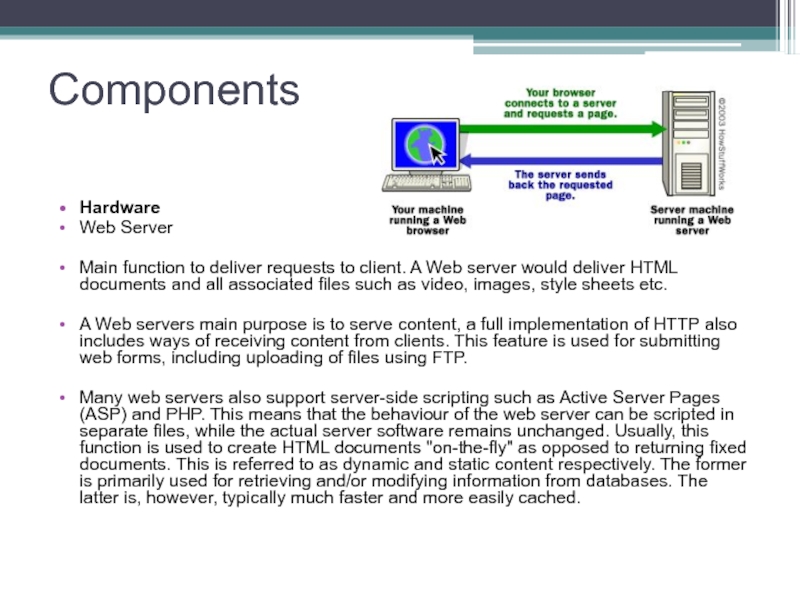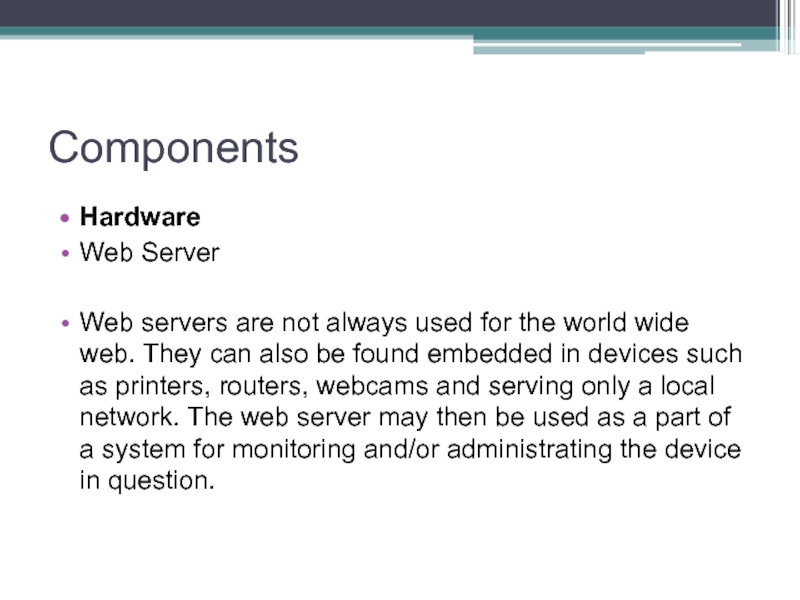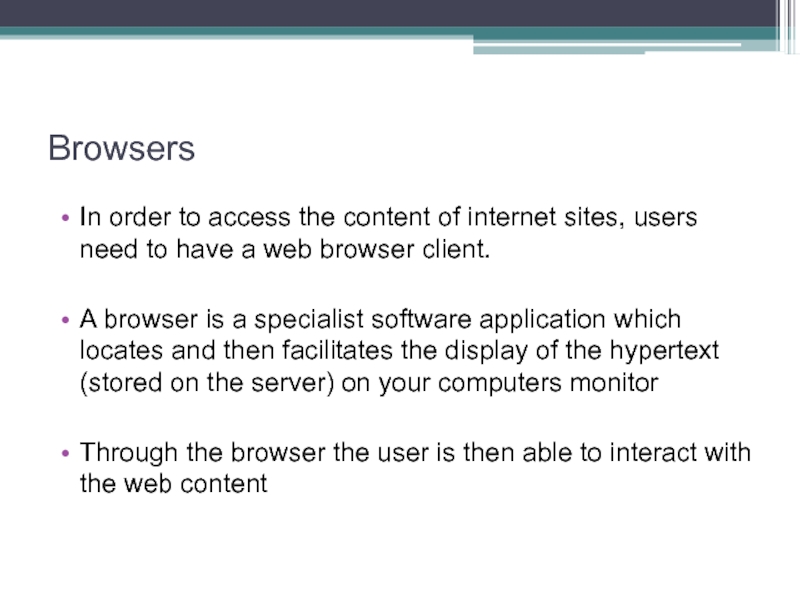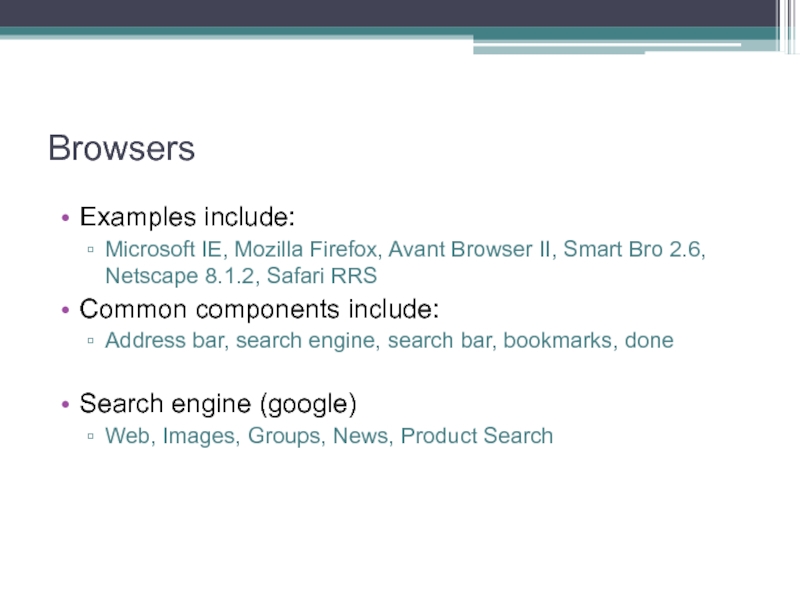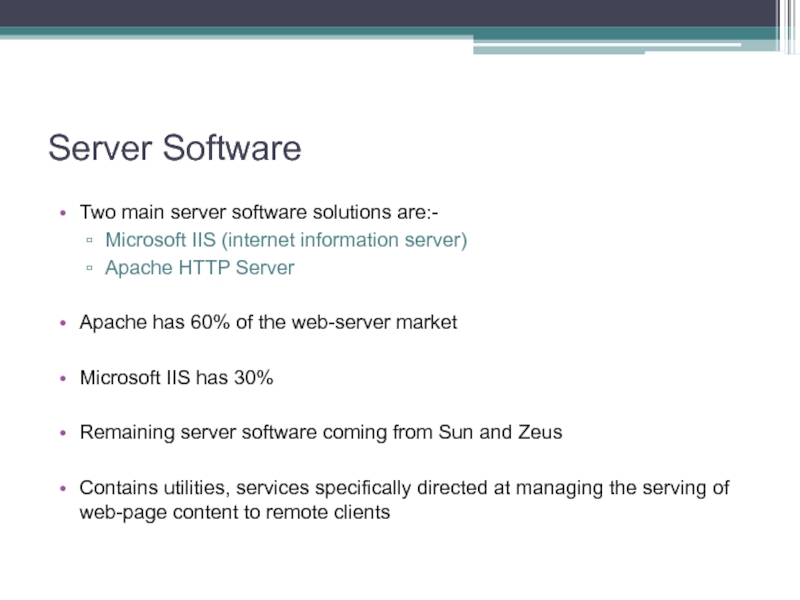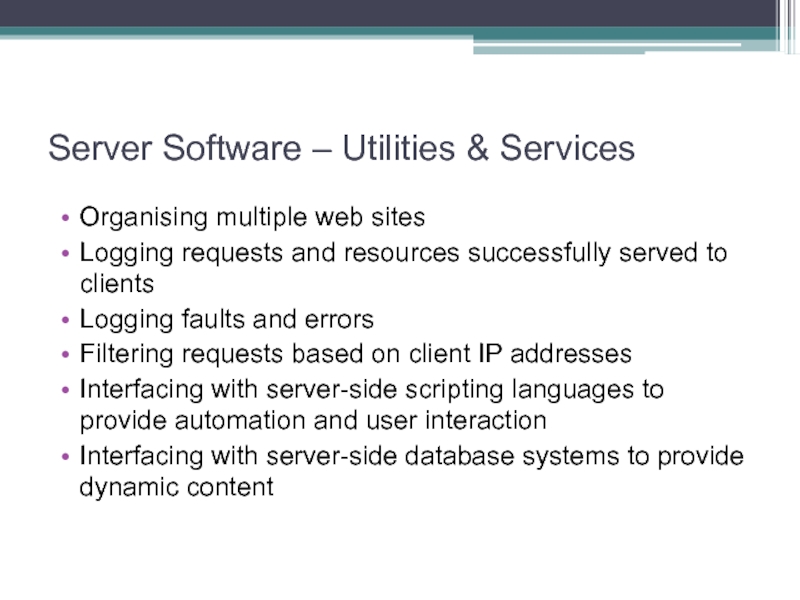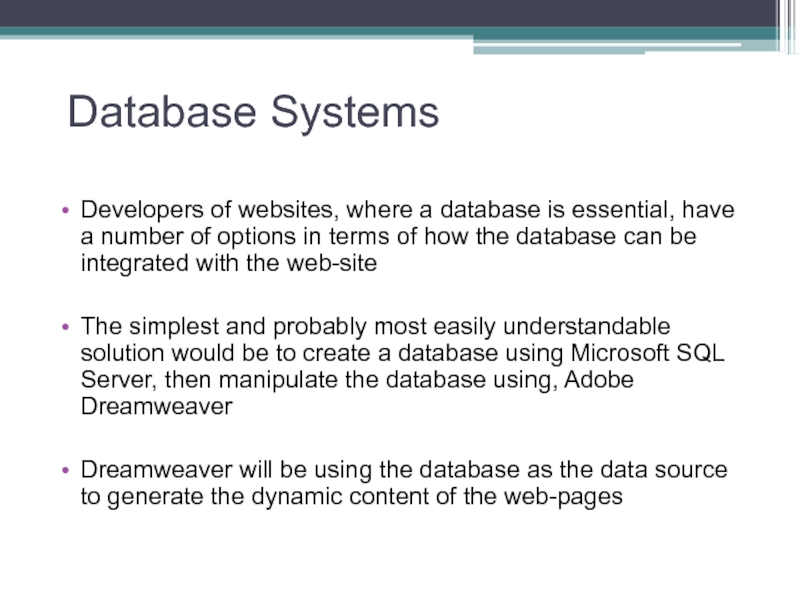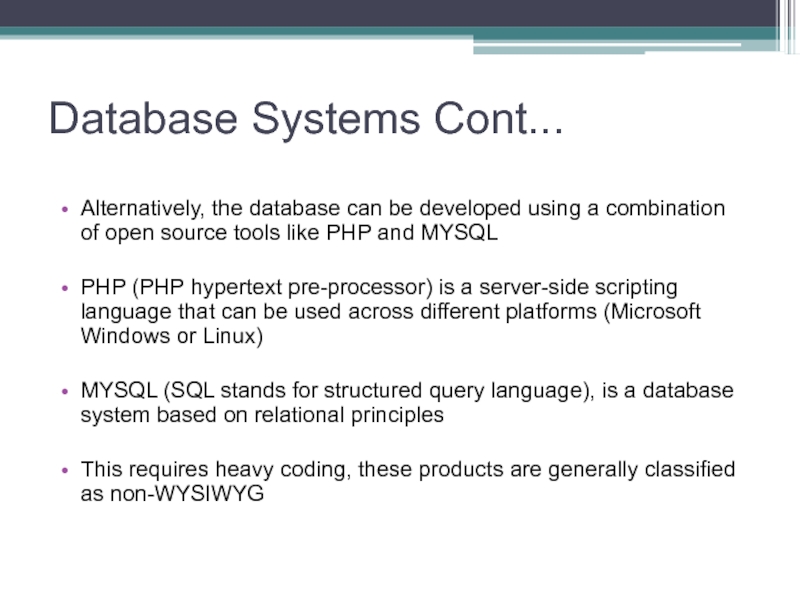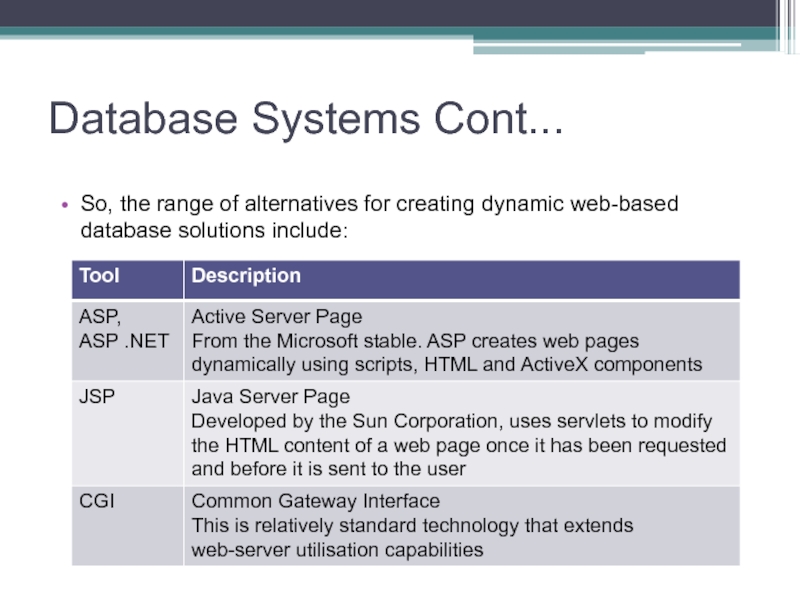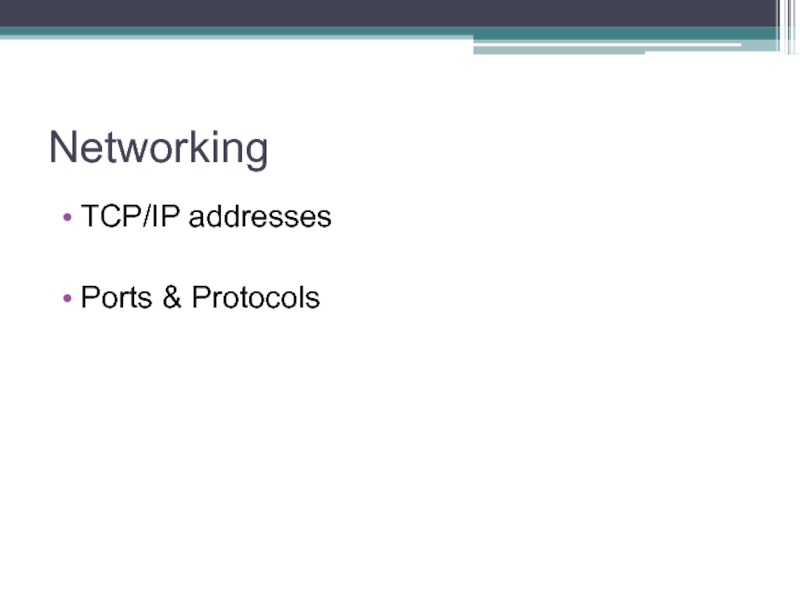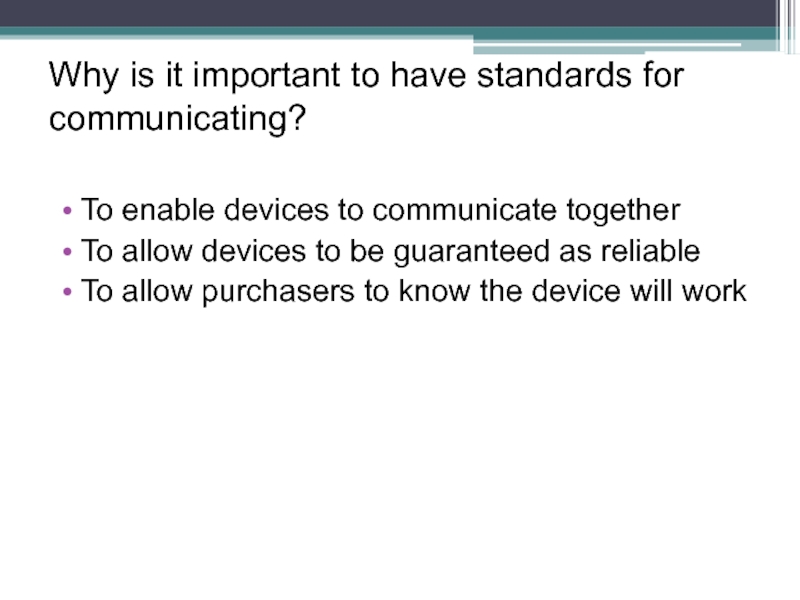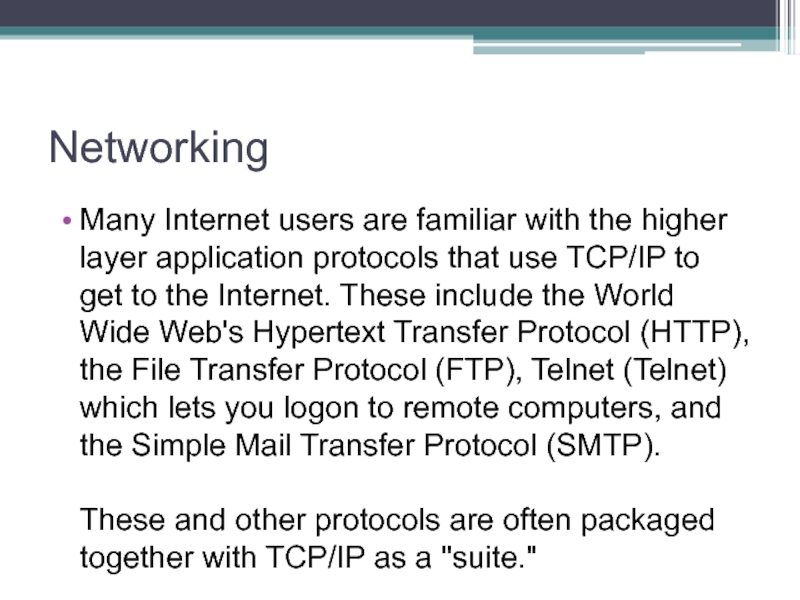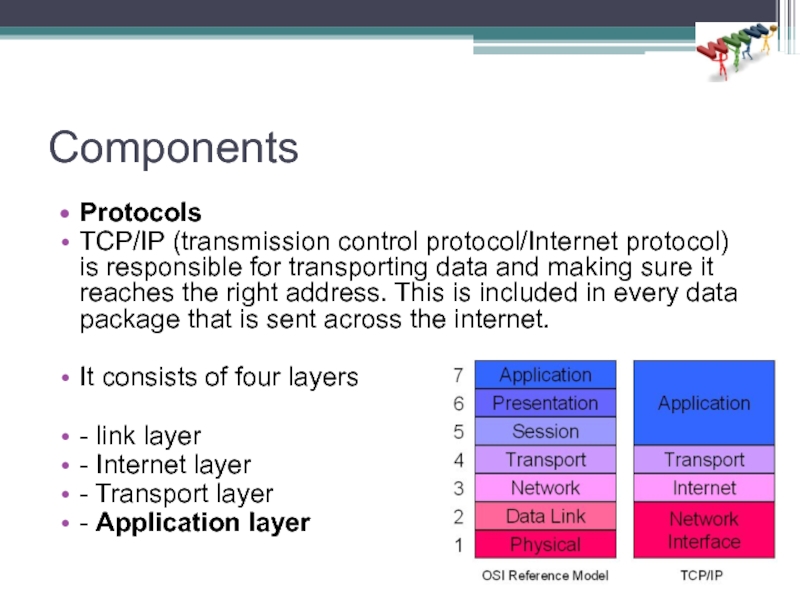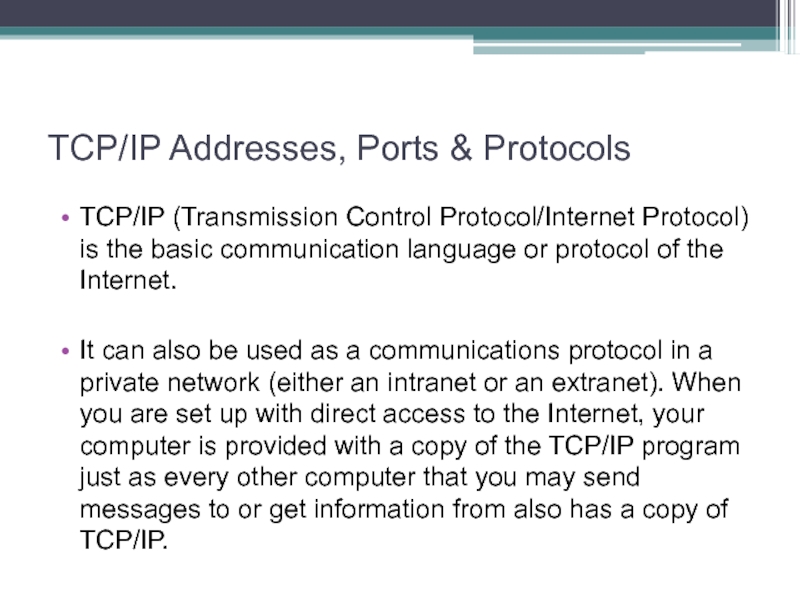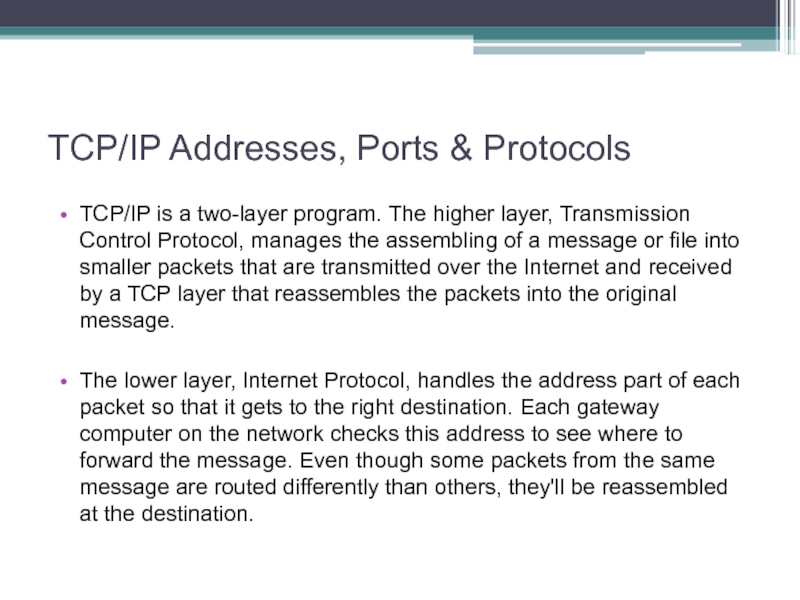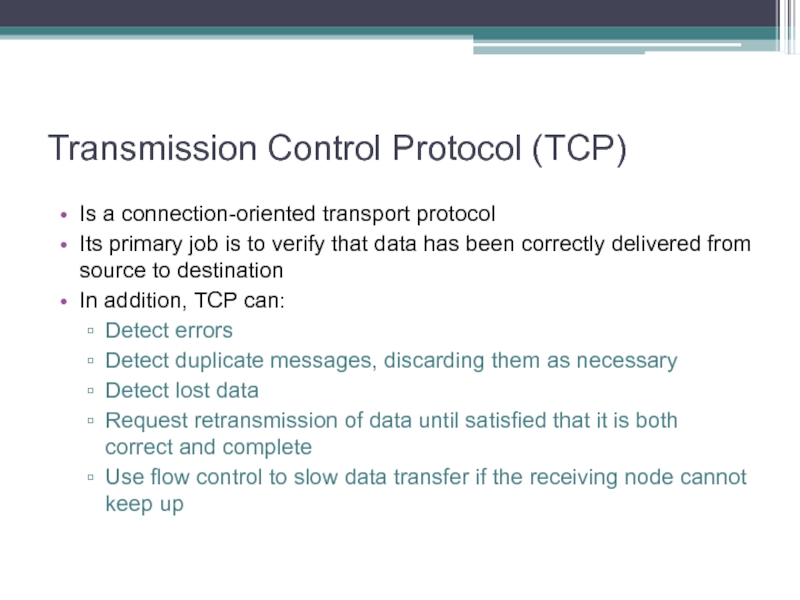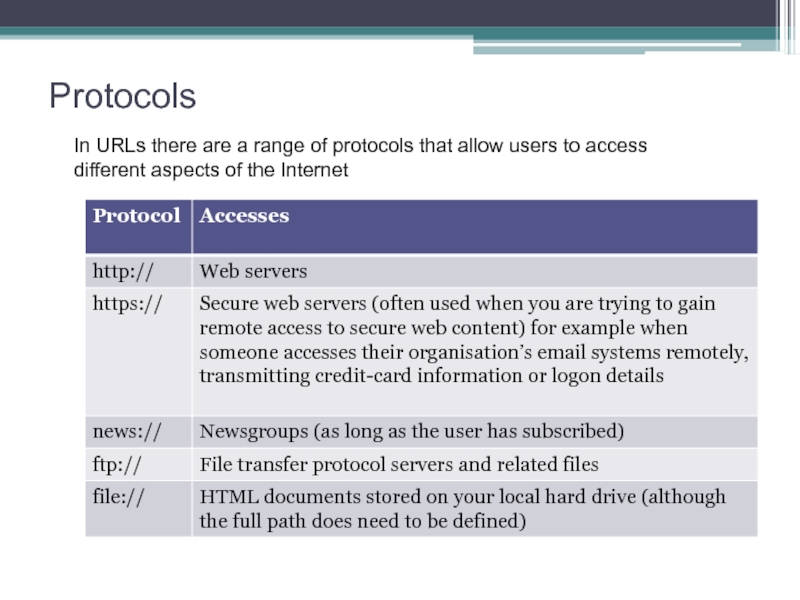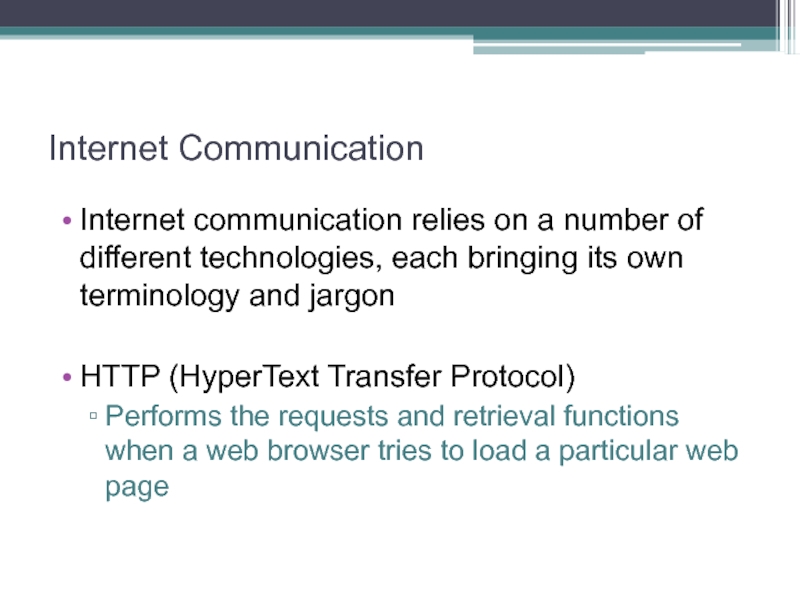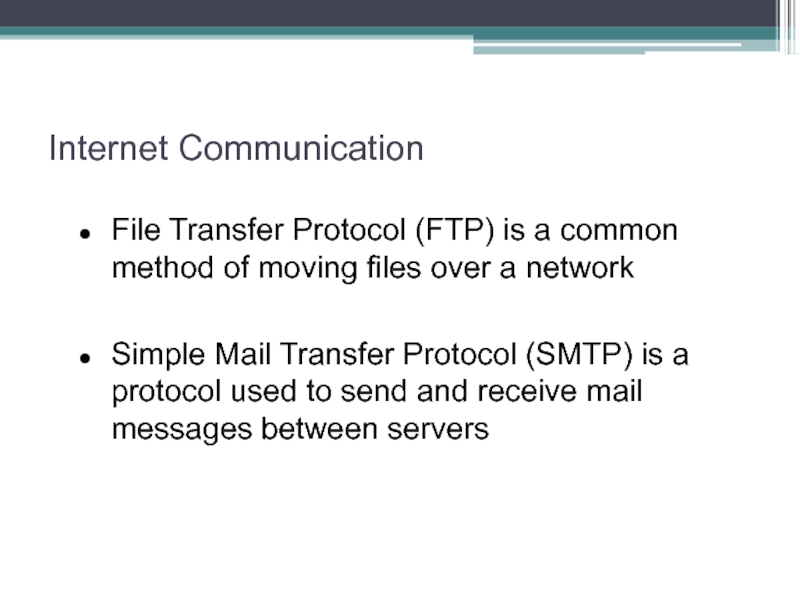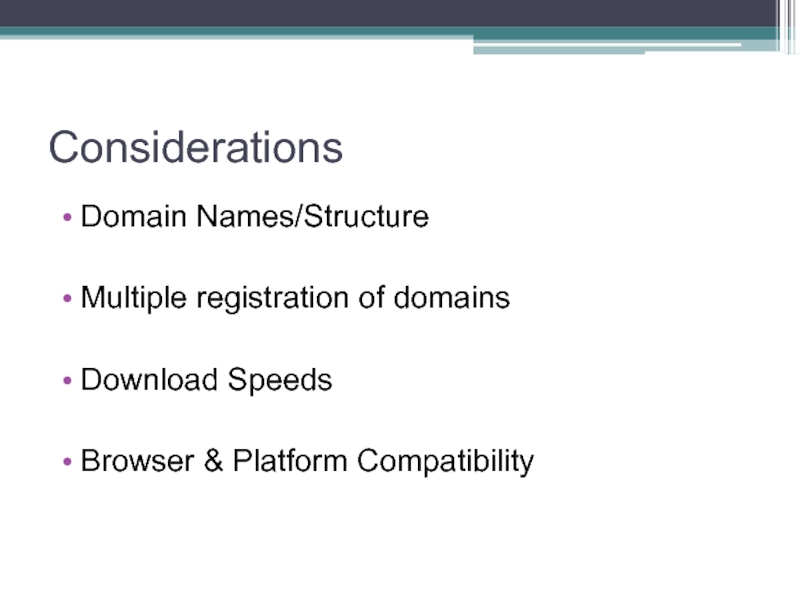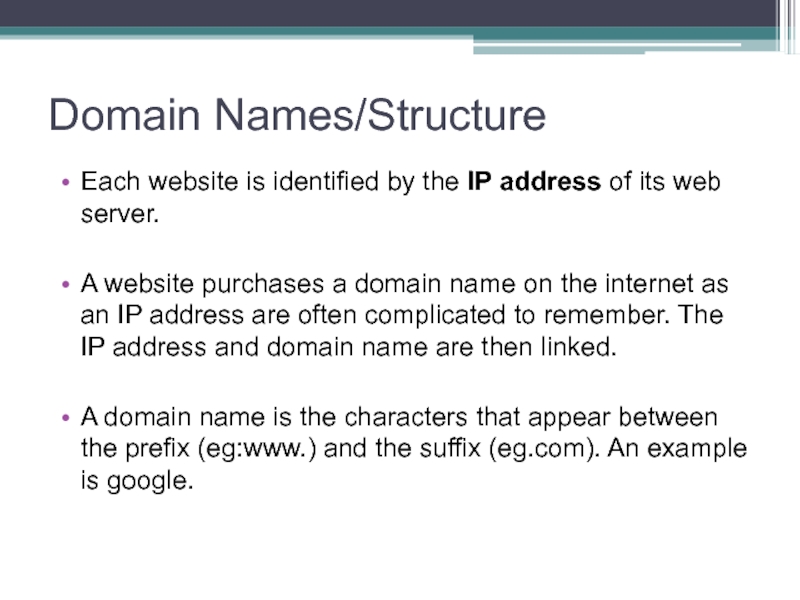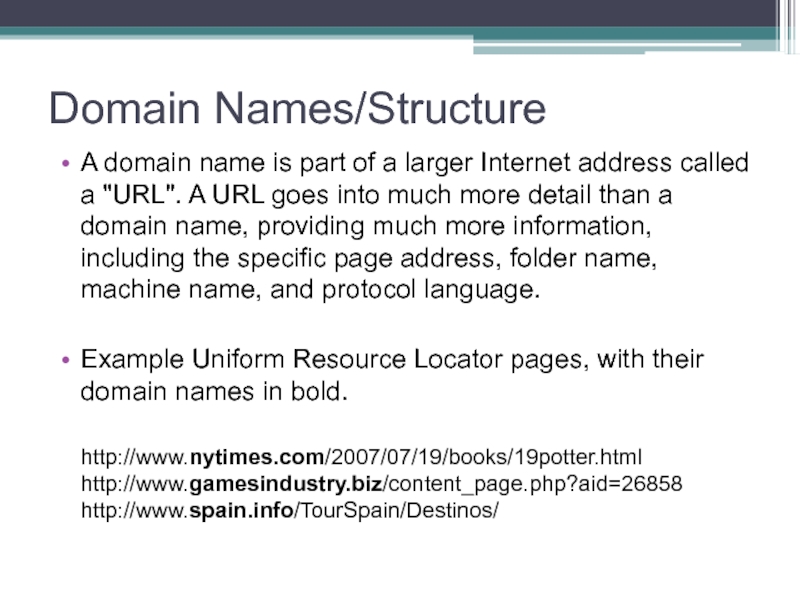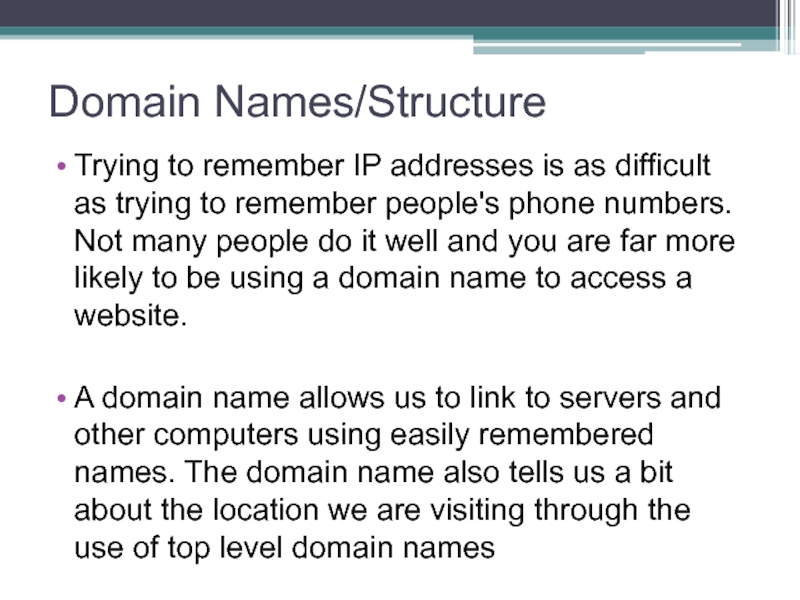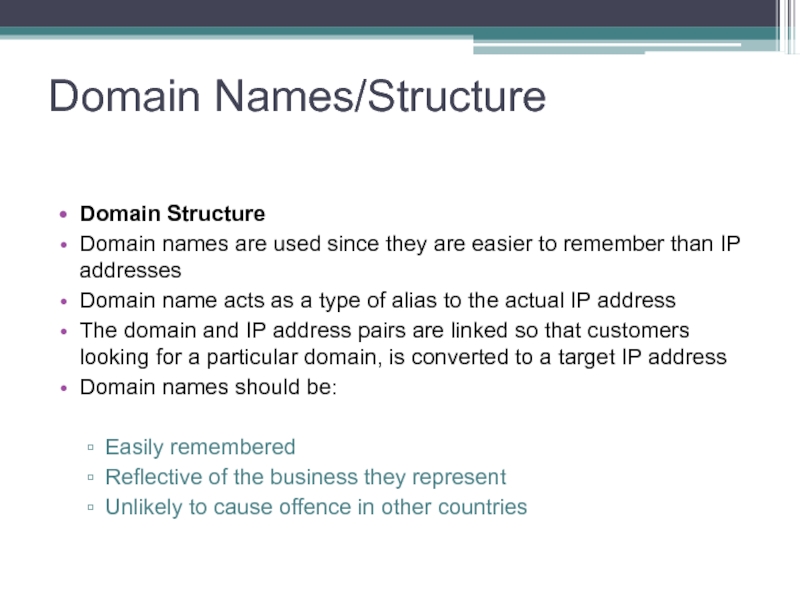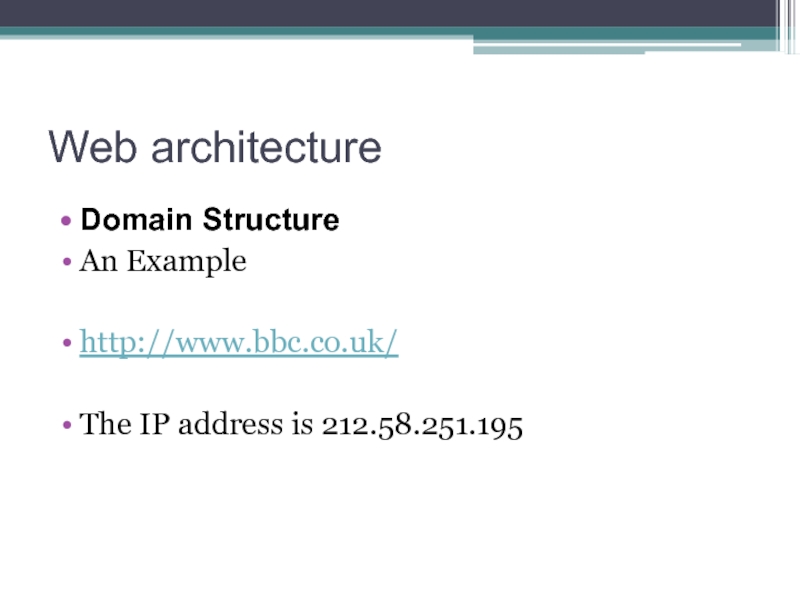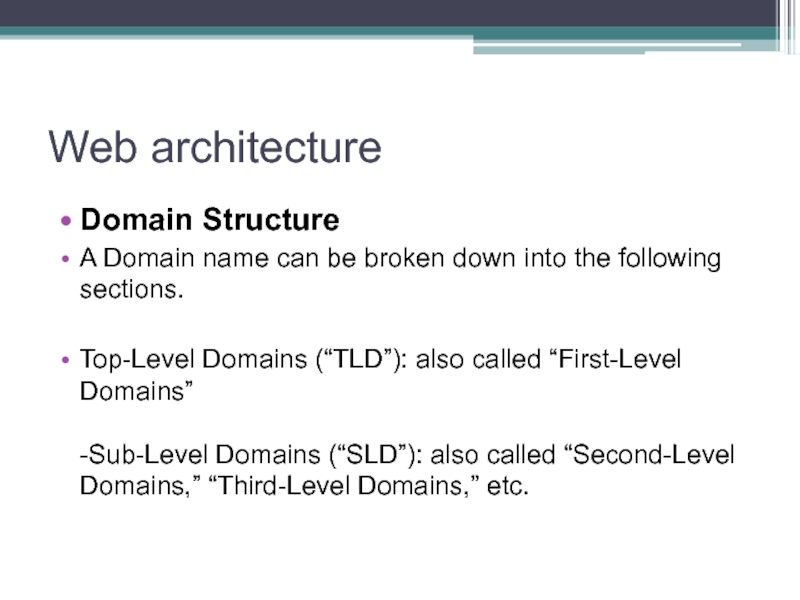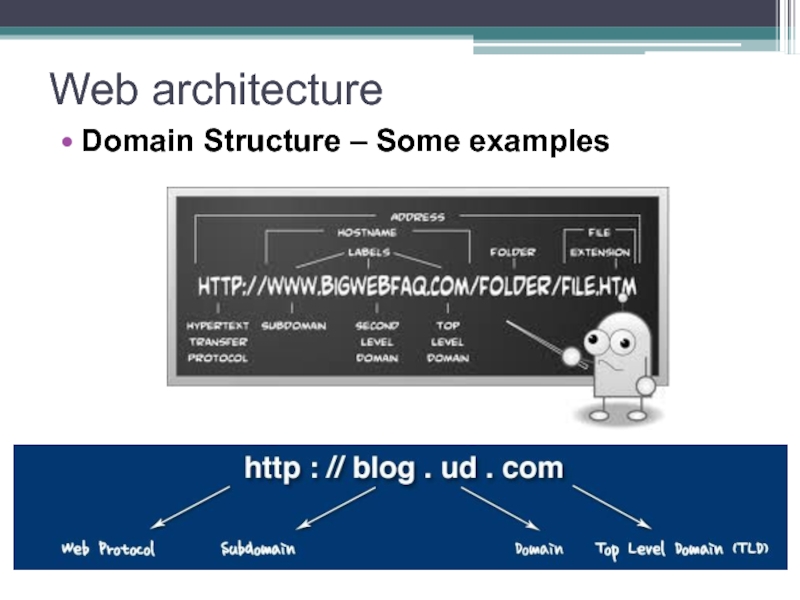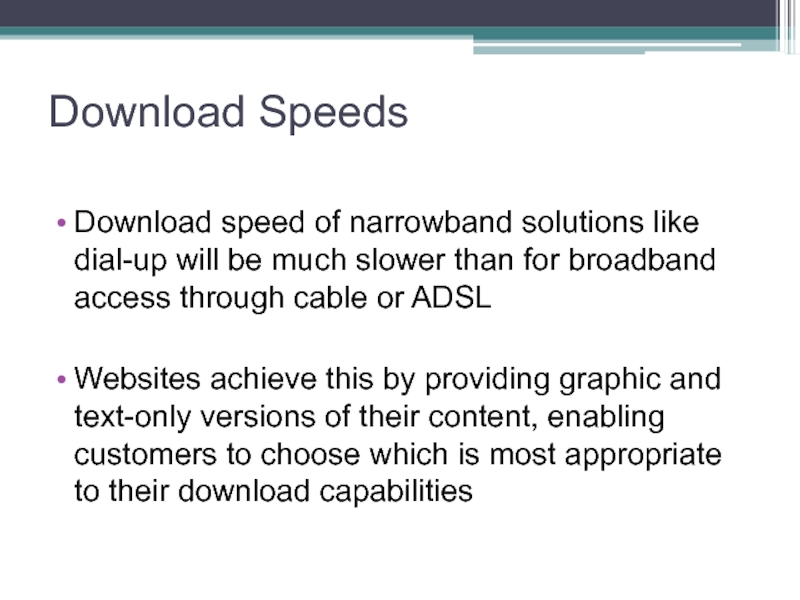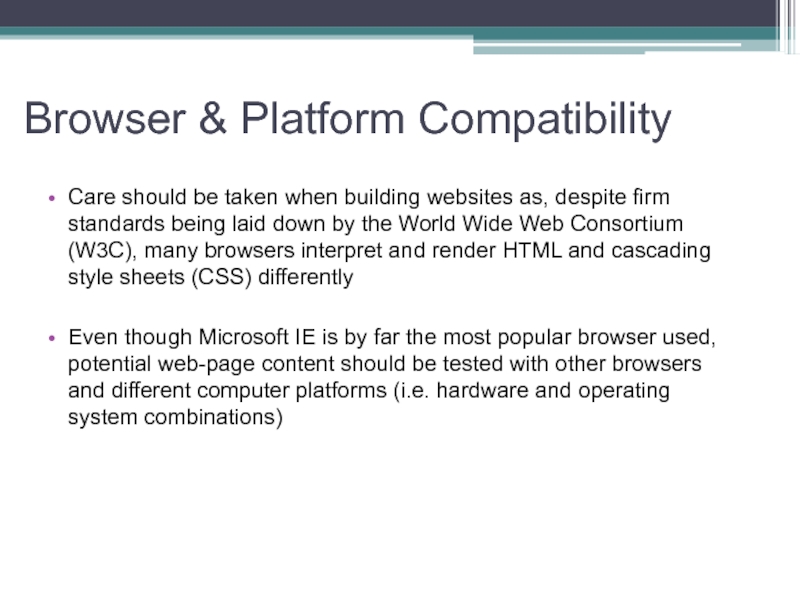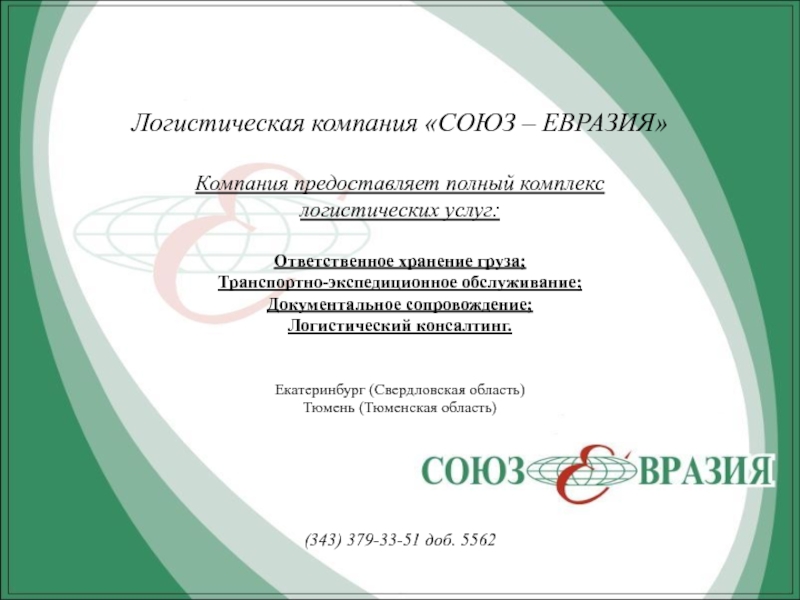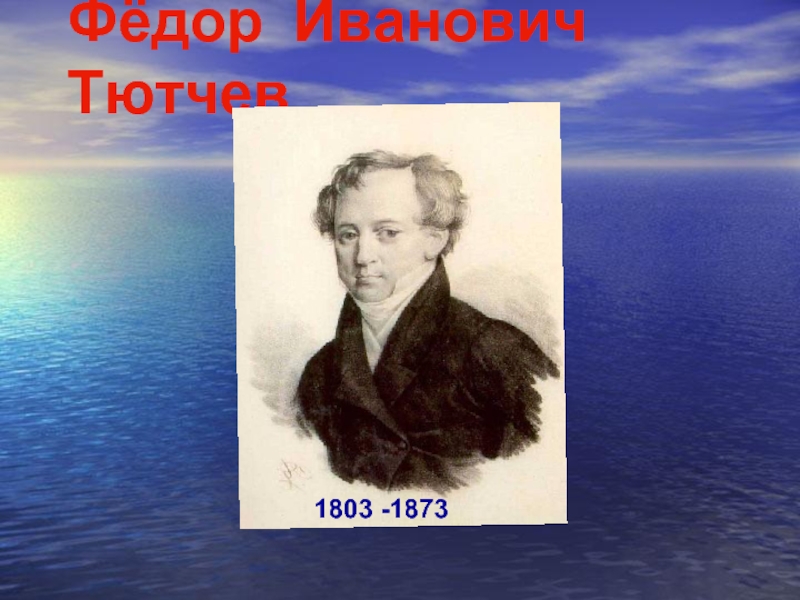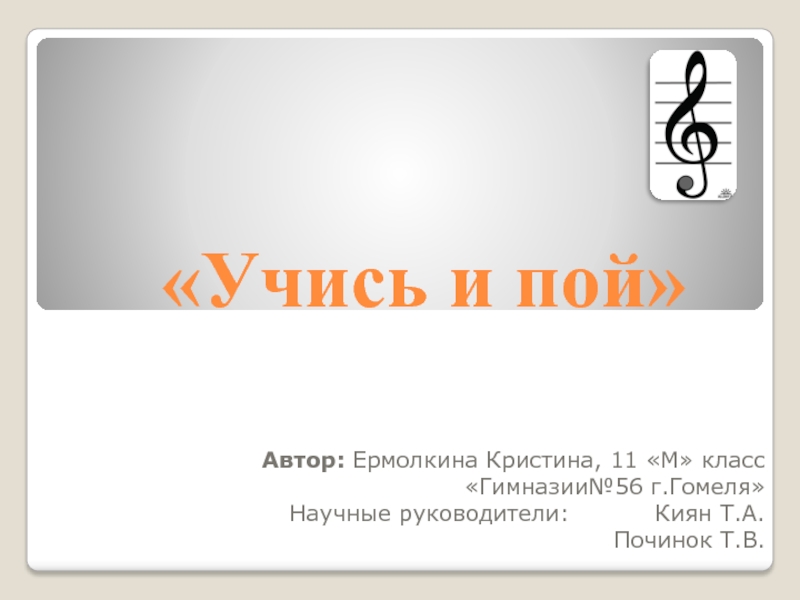- Главная
- Разное
- Дизайн
- Бизнес и предпринимательство
- Аналитика
- Образование
- Развлечения
- Красота и здоровье
- Финансы
- Государство
- Путешествия
- Спорт
- Недвижимость
- Армия
- Графика
- Культурология
- Еда и кулинария
- Лингвистика
- Английский язык
- Астрономия
- Алгебра
- Биология
- География
- Детские презентации
- Информатика
- История
- Литература
- Маркетинг
- Математика
- Медицина
- Менеджмент
- Музыка
- МХК
- Немецкий язык
- ОБЖ
- Обществознание
- Окружающий мир
- Педагогика
- Русский язык
- Технология
- Физика
- Философия
- Химия
- Шаблоны, картинки для презентаций
- Экология
- Экономика
- Юриспруденция
Unit 8: e-Commerce. P1 - Technologies. Objectives презентация
Содержание
- 1. Unit 8: e-Commerce. P1 - Technologies. Objectives
- 2. Objectives Understand the need to study e-Commerce
- 3. What is e-Commerce?
- 4. Who uses e-Commerce?
- 5. e-Commerce Sales - Europe
- 6. Global Revenues
- 7. What is the Internet?
- 8. Evolution of the Internet
- 9. Why has the Technology developed?
- 10. What do we do Online? If we
- 11. What do we do Online?
- 12. Activity In Groups What technologies do
- 13. Technologies involved in e-Commerce Hardware & Software
- 14. Hardware & Software Web Servers Browsers
- 15. Web Servers A Web Server is a
- 16. Components Hardware Web Server Main function
- 17. Components Hardware Web Server Web servers
- 18. Browsers In order to access the content
- 19. Browsers Examples include: Microsoft IE, Mozilla Firefox,
- 20. Server Software Two main server software solutions
- 21. Server Software – Utilities & Services Organising
- 22. Web-Authoring Tools A web-authoring tool is basically
- 23. Database Systems Developers of websites, where a
- 24. Database Systems Cont... Alternatively, the database can
- 25. Database Systems Cont... So, the range of
- 26. Networking TCP/IP addresses Ports & Protocols
- 27. Why is it important to have standards
- 28. Networking Many Internet users are familiar with
- 29. Components Protocols TCP/IP (transmission control protocol/Internet protocol)
- 30. Components Protocols Each layer deals with a
- 31. TCP/IP Addresses, Ports & Protocols TCP/IP
- 32. TCP/IP Addresses, Ports & Protocols TCP/IP
- 33. TCP/IP Addresses, Ports & Protocols TCP/IP
- 34. Transmission Control Protocol (TCP) Is a
- 35. Protocols In URLs there are a
- 36. Internet Communication Internet communication relies on
- 37. Internet Communication URL (Uniform Resource Locator)
- 38. Internet Communication File Transfer Protocol (FTP)
- 39. Considerations Domain Names/Structure Multiple registration of
- 40. Domain Names/Structure Each website is identified by
- 41. Domain Names/Structure A domain name is part
- 42. Domain Names/Structure Trying to remember IP addresses
- 43. Domain Names/Structure Domain Structure Domain names are
- 44. Web architecture Domain Structure An Example
- 45. Web architecture Domain Structure A Domain
- 46. Web architecture Domain Structure – Some examples
- 47. Web architecture Domain Name Registrars
- 48. Download Speeds Download speed of narrowband
- 49. Browser & Platform Compatibility Care should
Слайд 2Objectives
Understand the need to study e-Commerce
Understand the technologies involved in e-Commerce
Understand
what hardware, software & networking is involved in e-Commerce
Слайд 10What do we do Online?
If we did not understand the hardware,
software and networking equipment that allows websites and the internet to function how would that impact us?
What happens in one minute on the internet?
What happens in one minute on the internet?
Слайд 12Activity
In Groups
What technologies do you think we need for an e-Commerce
Website?
Report back with your findings.
Report back with your findings.
Слайд 13Technologies involved in e-Commerce
Hardware & Software
Browsers
Portability
Web Servers
Server Software
Web-Authoring Tools
Database Systems
Storage Size
Download
Speeds
Browser & Platform Compatibility
Слайд 15Web Servers
A Web Server is a computer that stores and organises
website content written in HyperText Markup Language (HTML)
Users will access this material via a web browser
Web Servers are sometimes referred to as a HTTP Server or an Application Server.
Users will access this material via a web browser
Web Servers are sometimes referred to as a HTTP Server or an Application Server.
Слайд 16Components
Hardware
Web Server
Main function to deliver requests to client. A Web server
would deliver HTML documents and all associated files such as video, images, style sheets etc.
A Web servers main purpose is to serve content, a full implementation of HTTP also includes ways of receiving content from clients. This feature is used for submitting web forms, including uploading of files using FTP.
Many web servers also support server-side scripting such as Active Server Pages (ASP) and PHP. This means that the behaviour of the web server can be scripted in separate files, while the actual server software remains unchanged. Usually, this function is used to create HTML documents "on-the-fly" as opposed to returning fixed documents. This is referred to as dynamic and static content respectively. The former is primarily used for retrieving and/or modifying information from databases. The latter is, however, typically much faster and more easily cached.
A Web servers main purpose is to serve content, a full implementation of HTTP also includes ways of receiving content from clients. This feature is used for submitting web forms, including uploading of files using FTP.
Many web servers also support server-side scripting such as Active Server Pages (ASP) and PHP. This means that the behaviour of the web server can be scripted in separate files, while the actual server software remains unchanged. Usually, this function is used to create HTML documents "on-the-fly" as opposed to returning fixed documents. This is referred to as dynamic and static content respectively. The former is primarily used for retrieving and/or modifying information from databases. The latter is, however, typically much faster and more easily cached.
Слайд 17Components
Hardware
Web Server
Web servers are not always used for the world wide
web. They can also be found embedded in devices such as printers, routers, webcams and serving only a local network. The web server may then be used as a part of a system for monitoring and/or administrating the device in question.
Слайд 18Browsers
In order to access the content of internet sites, users need
to have a web browser client.
A browser is a specialist software application which locates and then facilitates the display of the hypertext (stored on the server) on your computers monitor
Through the browser the user is then able to interact with the web content
A browser is a specialist software application which locates and then facilitates the display of the hypertext (stored on the server) on your computers monitor
Through the browser the user is then able to interact with the web content
Слайд 19Browsers
Examples include:
Microsoft IE, Mozilla Firefox, Avant Browser II, Smart Bro 2.6,
Netscape 8.1.2, Safari RRS
Common components include:
Address bar, search engine, search bar, bookmarks, done
Search engine (google)
Web, Images, Groups, News, Product Search
Common components include:
Address bar, search engine, search bar, bookmarks, done
Search engine (google)
Web, Images, Groups, News, Product Search
Слайд 20Server Software
Two main server software solutions are:-
Microsoft IIS (internet information server)
Apache
HTTP Server
Apache has 60% of the web-server market
Microsoft IIS has 30%
Remaining server software coming from Sun and Zeus
Contains utilities, services specifically directed at managing the serving of web-page content to remote clients
Apache has 60% of the web-server market
Microsoft IIS has 30%
Remaining server software coming from Sun and Zeus
Contains utilities, services specifically directed at managing the serving of web-page content to remote clients
Слайд 21Server Software – Utilities & Services
Organising multiple web sites
Logging requests and
resources successfully served to clients
Logging faults and errors
Filtering requests based on client IP addresses
Interfacing with server-side scripting languages to provide automation and user interaction
Interfacing with server-side database systems to provide dynamic content
Logging faults and errors
Filtering requests based on client IP addresses
Interfacing with server-side scripting languages to provide automation and user interaction
Interfacing with server-side database systems to provide dynamic content
Слайд 22Web-Authoring Tools
A web-authoring tool is basically a software application that is
used to generate web pages
This software includes HTML/text editors such as:
Adobe Page Mill, Adobe Homesite, AOL Press, Coffee Cup HTML Editor
And combined site management and editing products such as:
Adobe Dreamweaver, Microsoft FrontPage, HoTMetal Pro
The most common web-authoring techniques are text and html editors
This software includes HTML/text editors such as:
Adobe Page Mill, Adobe Homesite, AOL Press, Coffee Cup HTML Editor
And combined site management and editing products such as:
Adobe Dreamweaver, Microsoft FrontPage, HoTMetal Pro
The most common web-authoring techniques are text and html editors
Слайд 23Database Systems
Developers of websites, where a database is essential, have a
number of options in terms of how the database can be integrated with the web-site
The simplest and probably most easily understandable solution would be to create a database using Microsoft SQL Server, then manipulate the database using, Adobe Dreamweaver
Dreamweaver will be using the database as the data source to generate the dynamic content of the web-pages
The simplest and probably most easily understandable solution would be to create a database using Microsoft SQL Server, then manipulate the database using, Adobe Dreamweaver
Dreamweaver will be using the database as the data source to generate the dynamic content of the web-pages
Слайд 24Database Systems Cont...
Alternatively, the database can be developed using a combination
of open source tools like PHP and MYSQL
PHP (PHP hypertext pre-processor) is a server-side scripting language that can be used across different platforms (Microsoft Windows or Linux)
MYSQL (SQL stands for structured query language), is a database system based on relational principles
This requires heavy coding, these products are generally classified as non-WYSIWYG
PHP (PHP hypertext pre-processor) is a server-side scripting language that can be used across different platforms (Microsoft Windows or Linux)
MYSQL (SQL stands for structured query language), is a database system based on relational principles
This requires heavy coding, these products are generally classified as non-WYSIWYG
Слайд 25Database Systems Cont...
So, the range of alternatives for creating dynamic web-based
database solutions include:
Слайд 27Why is it important to have standards for communicating?
To enable devices
to communicate together
To allow devices to be guaranteed as reliable
To allow purchasers to know the device will work
To allow devices to be guaranteed as reliable
To allow purchasers to know the device will work
Слайд 28Networking
Many Internet users are familiar with the higher layer application protocols
that use TCP/IP to get to the Internet. These include the World Wide Web's Hypertext Transfer Protocol (HTTP), the File Transfer Protocol (FTP), Telnet (Telnet) which lets you logon to remote computers, and the Simple Mail Transfer Protocol (SMTP).
These and other protocols are often packaged together with TCP/IP as a "suite."
Слайд 29Components
Protocols
TCP/IP (transmission control protocol/Internet protocol) is responsible for transporting data and
making sure it reaches the right address. This is included in every data package that is sent across the internet.
It consists of four layers
- link layer
- Internet layer
- Transport layer
- Application layer
It consists of four layers
- link layer
- Internet layer
- Transport layer
- Application layer
Слайд 30Components
Protocols
Each layer deals with a different purpose.
Link Layer/Network Interface Layer –
lowest layer, deals with hardware, navigating through the myriad of routers, servers and other machinery to reach its destination.
Internet Layer – focuses on the targeting of the IP address.
Transport Layer – Establishes communications between hosts and moves the package towards its destination.
Application Layer - the application layer is used by network applications. These programs are what actually implement the functions performed by users on the network such as HTTP, FTP, SMTP etc
Internet Layer – focuses on the targeting of the IP address.
Transport Layer – Establishes communications between hosts and moves the package towards its destination.
Application Layer - the application layer is used by network applications. These programs are what actually implement the functions performed by users on the network such as HTTP, FTP, SMTP etc
Слайд 31TCP/IP Addresses, Ports & Protocols
TCP/IP (Transmission Control Protocol/Internet Protocol) is
the basic communication language or protocol of the Internet.
It can also be used as a communications protocol in a private network (either an intranet or an extranet). When you are set up with direct access to the Internet, your computer is provided with a copy of the TCP/IP program just as every other computer that you may send messages to or get information from also has a copy of TCP/IP.
It can also be used as a communications protocol in a private network (either an intranet or an extranet). When you are set up with direct access to the Internet, your computer is provided with a copy of the TCP/IP program just as every other computer that you may send messages to or get information from also has a copy of TCP/IP.
Слайд 32TCP/IP Addresses, Ports & Protocols
TCP/IP is a two-layer program. The
higher layer, Transmission Control Protocol, manages the assembling of a message or file into smaller packets that are transmitted over the Internet and received by a TCP layer that reassembles the packets into the original message.
The lower layer, Internet Protocol, handles the address part of each packet so that it gets to the right destination. Each gateway computer on the network checks this address to see where to forward the message. Even though some packets from the same message are routed differently than others, they'll be reassembled at the destination.
The lower layer, Internet Protocol, handles the address part of each packet so that it gets to the right destination. Each gateway computer on the network checks this address to see where to forward the message. Even though some packets from the same message are routed differently than others, they'll be reassembled at the destination.
Слайд 33TCP/IP Addresses, Ports & Protocols
TCP/IP communication is primarily point-to-point, meaning
each communication is from one point (or host computer) in the network to another point or host computer.
TCP/IP and the higher-level applications that use it are collectively said to be "stateless" because each client request is considered a new request unrelated to any previous one (unlike ordinary phone conversations that require a dedicated connection for the call duration). Being stateless frees network paths so that everyone can use them continuously.
TCP/IP and the higher-level applications that use it are collectively said to be "stateless" because each client request is considered a new request unrelated to any previous one (unlike ordinary phone conversations that require a dedicated connection for the call duration). Being stateless frees network paths so that everyone can use them continuously.
Слайд 34Transmission Control Protocol (TCP)
Is a connection-oriented transport protocol
Its primary job
is to verify that data has been correctly delivered from source to destination
In addition, TCP can:
Detect errors
Detect duplicate messages, discarding them as necessary
Detect lost data
Request retransmission of data until satisfied that it is both correct and complete
Use flow control to slow data transfer if the receiving node cannot keep up
In addition, TCP can:
Detect errors
Detect duplicate messages, discarding them as necessary
Detect lost data
Request retransmission of data until satisfied that it is both correct and complete
Use flow control to slow data transfer if the receiving node cannot keep up
Слайд 35Protocols
In URLs there are a range of protocols that allow
users to access different aspects of the Internet
Слайд 36Internet Communication
Internet communication relies on a number of different technologies,
each bringing its own terminology and jargon
HTTP (HyperText Transfer Protocol)
Performs the requests and retrieval functions when a web browser tries to load a particular web page
HTTP (HyperText Transfer Protocol)
Performs the requests and retrieval functions when a web browser tries to load a particular web page
Слайд 37Internet Communication
URL (Uniform Resource Locator) is the address of a
resource available on the internet
HTTPS (HTTP Secured) is used for security-sensitive communications such as:-
Online payment transactions
Online banking
Corporate log-ons
HTTPS (HTTP Secured) is used for security-sensitive communications such as:-
Online payment transactions
Online banking
Corporate log-ons
Слайд 38Internet Communication
File Transfer Protocol (FTP) is a common method of
moving files over a network
Simple Mail Transfer Protocol (SMTP) is a protocol used to send and receive mail messages between servers
Simple Mail Transfer Protocol (SMTP) is a protocol used to send and receive mail messages between servers
Слайд 39Considerations
Domain Names/Structure
Multiple registration of domains
Download Speeds
Browser & Platform Compatibility
Слайд 40Domain Names/Structure
Each website is identified by the IP address of its
web server.
A website purchases a domain name on the internet as an IP address are often complicated to remember. The IP address and domain name are then linked.
A domain name is the characters that appear between the prefix (eg:www.) and the suffix (eg.com). An example is google.
A website purchases a domain name on the internet as an IP address are often complicated to remember. The IP address and domain name are then linked.
A domain name is the characters that appear between the prefix (eg:www.) and the suffix (eg.com). An example is google.
Слайд 41Domain Names/Structure
A domain name is part of a larger Internet address
called a "URL". A URL goes into much more detail than a domain name, providing much more information, including the specific page address, folder name, machine name, and protocol language.
Example Uniform Resource Locator pages, with their domain names in bold. http://www.nytimes.com/2007/07/19/books/19potter.html http://www.gamesindustry.biz/content_page.php?aid=26858 http://www.spain.info/TourSpain/Destinos/
Example Uniform Resource Locator pages, with their domain names in bold. http://www.nytimes.com/2007/07/19/books/19potter.html http://www.gamesindustry.biz/content_page.php?aid=26858 http://www.spain.info/TourSpain/Destinos/
Слайд 42Domain Names/Structure
Trying to remember IP addresses is as difficult as trying
to remember people's phone numbers. Not many people do it well and you are far more likely to be using a domain name to access a website.
A domain name allows us to link to servers and other computers using easily remembered names. The domain name also tells us a bit about the location we are visiting through the use of top level domain names
A domain name allows us to link to servers and other computers using easily remembered names. The domain name also tells us a bit about the location we are visiting through the use of top level domain names
Слайд 43Domain Names/Structure
Domain Structure
Domain names are used since they are easier to
remember than IP addresses
Domain name acts as a type of alias to the actual IP address
The domain and IP address pairs are linked so that customers looking for a particular domain, is converted to a target IP address
Domain names should be:
Easily remembered
Reflective of the business they represent
Unlikely to cause offence in other countries
Domain name acts as a type of alias to the actual IP address
The domain and IP address pairs are linked so that customers looking for a particular domain, is converted to a target IP address
Domain names should be:
Easily remembered
Reflective of the business they represent
Unlikely to cause offence in other countries
Слайд 44Web architecture
Domain Structure
An Example
http://www.bbc.co.uk/
The IP address is 212.58.251.195
Слайд 45Web architecture
Domain Structure
A Domain name can be broken down into
the following sections.
Top-Level Domains (“TLD”): also called “First-Level Domains” -Sub-Level Domains (“SLD”): also called “Second-Level Domains,” “Third-Level Domains,” etc.
Top-Level Domains (“TLD”): also called “First-Level Domains” -Sub-Level Domains (“SLD”): also called “Second-Level Domains,” “Third-Level Domains,” etc.
Слайд 47Web architecture
Domain Name Registrars
A domain name should be easy
for a user to remember, simple to type and meaningful, reflecting the sites content. Examples of words used together to form a domain name is webuyanycar.com
Many companies also buy similar sounding domain names such as
www.edexcel.com
www.edexcel.co.uk
www.edexel.com
Many companies also buy similar sounding domain names such as
www.edexcel.com
www.edexcel.co.uk
www.edexel.com
Слайд 48Download Speeds
Download speed of narrowband solutions like dial-up will be
much slower than for broadband access through cable or ADSL
Websites achieve this by providing graphic and text-only versions of their content, enabling customers to choose which is most appropriate to their download capabilities
Websites achieve this by providing graphic and text-only versions of their content, enabling customers to choose which is most appropriate to their download capabilities
Слайд 49Browser & Platform Compatibility
Care should be taken when building websites
as, despite firm standards being laid down by the World Wide Web Consortium (W3C), many browsers interpret and render HTML and cascading style sheets (CSS) differently
Even though Microsoft IE is by far the most popular browser used, potential web-page content should be tested with other browsers and different computer platforms (i.e. hardware and operating system combinations)
Even though Microsoft IE is by far the most popular browser used, potential web-page content should be tested with other browsers and different computer platforms (i.e. hardware and operating system combinations)
